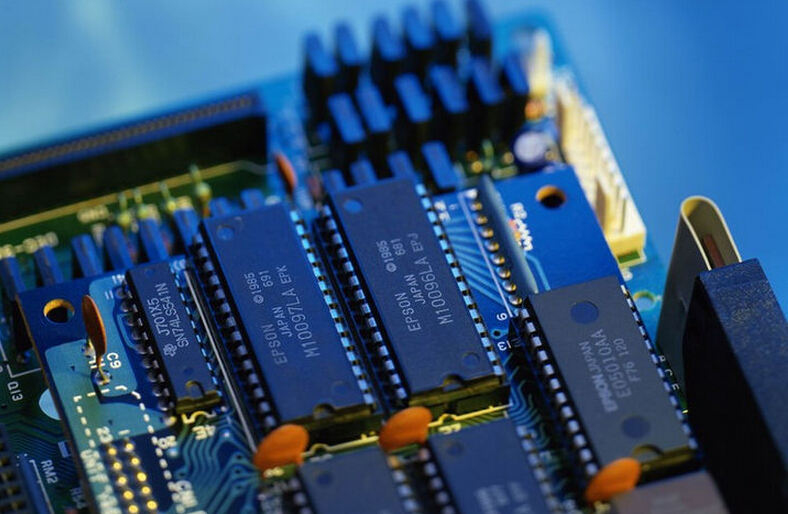(单词翻译:单击)
Every one of today’s smartphones has thousands of times more processing power than the computers that guided astronauts to the moon. And if Moore’s law – the theory that computing capacity doubles roughly every two years – continues to be accurate, tomorrow’s computers will be even stronger.
与当年指导宇航员登月的计算机相比,今天每一部智能手机的数据处理能力都要胜出几千倍。如果摩尔定律依旧准确,未来计算机将更加强大。根据摩尔定律,计算能力大约每两年增加一倍。

But Americans today dream less often of feats that computers will help us to accomplish; more and more we have nightmares about computers taking away our jobs. The optimism that many felt in the 1960s over labour-saving technology is giving way to a fearful question: will your labour be good for anything in the future? Or will you be replaced by a machine?
但今日的美国人较少再幻想计算机将帮人类实现丰功伟绩,而是越来越恐惧计算机将夺走我们的工作。20世纪60年代时,许多人对节省人力的技术抱持乐观态度,而今这种乐观已让位于一个可怕的问题:你的劳动在未来有利用价值吗?或者是,你会被机器取代吗?
Fear of replacement is not new. Fifteen years ago American workers were worried about competition from cheaper Mexican substitutes. In 1992 US presidential candidate Ross Perot predicted that a “giant sucking sound” would be heard along the country’s southern border as soon as the North American Free Trade Agreement was signed.
这种害怕被取代的情绪并不新鲜。15年前,美国工人曾担心来自墨西哥廉价劳力的竞争。1992年美国总统候选人罗斯•佩罗(Ross Perot)曾预言,一旦《北美自由贸易协定》(North American Free Trade Agreement)签订,那么沿着美国南部边境,人们将听到一个“巨大的吮吸声”。
Today people think they can hear that sound once more – but they trace it to server farms in Texas instead of cut-rate factories in Tijuana. Americans fear the technology of the near future because they see it as a replay of the globalisation of the near past.
今天人们认为自己又再度听到这个声音,但当他们循声追踪,找到的却不是蒂华纳(Tijuana,墨西哥西北部城市)的廉价工厂,而是得克萨斯州的服务器群。美国人害怕“不久的将来”的科技,因为他们将此视作“不久的以前”出现的全球化的重演。
But the situations are very different: unlike fellow humans of different nationalities, computers are not substitutes for American labour. Men and machines are good at different things. People form plans and make decisions in complicated situations. We are less good at making sense of enormous amounts of data. Computers are exactly the opposite: they excel at efficient data processing but struggle to make basic judgments that would be simple for any human.
但两种情况有很大不同:电脑不像他国人类同胞,它们无法取代美国劳工。人和机器擅长的事情是不同的。人类可以在复杂情况下制定计划和作出决定。我们不擅长分析海量数据。计算机则正相反,它们擅长高效处理数据,但很难作出任何人都能轻易作出的基本判断。
I came to understand this from my experience as chief executive of PayPal. In mid-2000 we had survived the dotcom crash and we were growing fast but we faced one huge problem: we were losing upwards of $10m a month to credit card fraud. Since we were processing hundreds or even thousands of transactions each minute, we could not possibly review each one. No human quality control team could work that fast.
我是从担任Paypal首席执行官的经验中得出这一结论的。在21世纪头十年中期,我们挺过了互联网泡沫破灭,得到了快速增长,但我们遇到了一个大问题:我们每月因信用卡欺诈起码要损失1000万美元。由于我们每分钟要处理成百上千笔交易,所以不可能对每笔交易进行审查。由人力构成的质量管理团队绝不可能审查得这么快。
We tried to solve the problem by writing software that would automatically identify bogus transactions and cancel them in real time. But it quickly became clear that this approach would not work: after an hour or two, the thieves would catch on and change their tactics to fool our algorithms.
我们试过用编写软件来解决这一问题,该软件可以自动识别虚假交易,并实时取消。但事实很快证明这种方法行不通,只一两个小时后,窃贼们就搞懂了软件,然后改变策略以欺骗我们的算法。
Human analysts, however, were not easily fooled by criminals’ adaptive strategies. So we rewrote the software to take a hybrid approach: the computer would flag the most suspicious transactions, and human operators would make the final judgment.
然而人工分析师不会轻易被犯罪分子的适应性策略骗过。因此我们采取混合的方法重新编写了软件,先由计算机标记出最可疑的交易,再由人工操作者作出最终判断。
This kind of man-machine symbiosis enabled PayPal to stay in business, which in turn enabled hundreds of thousands of small businesses to accept the payments they needed to thrive on the internet.
这种人机合作令Paypal得以维持经营,反过来又让几十万家小企业能够收到付款,令它们得以在互联网上茁壮成长。
It would have been impossible without the man-machine solution – even though most PayPal customers would never even hear about it, thinking of us simply as a software company. Fascinated by automation, most people still overlook the role that humans play in running software that would be worthless on its own.
尽管大多数Paypal客户以为我们只是一家软件公司,他们甚至从没听过人机合作解决方案,但没有它的话,我们不可能获得这样的成绩。大多数人因对自动化的着迷,而忽视人类在软件运行中的作用,忘记如果没有人类操作,软件自身毫无价值。
Venture capitalist Marc Andreessen has declared: “Software is eating the world.” But it is irrational to be so afraid of being devoured.
风险投资家马克•安德烈森(Marc Andreessen)曾宣称:“软件正吞噬整个世界。”但这种担心是缺乏理性的。
We seem to have forgotten that computers do not eat. Their desires – for work or for anything else – are not just different. They are non-existent. All computers require is a small amount of electricity – and they are not smart enough to want even that.
我们似乎已经忘了计算机不会吃东西。无论是对工作还是其他任何事物,它们都没有任何欲望。它们是不存在的。计算机所需要的不过是少许电力,而且就连这点需求它们都没聪明到主动提出。
Unlike computers, people do eat: whether shark fins in Shanghai or fish tacos in San Diego, everyone needs food. Humans also drink, drill for oil and mine for minerals – all on the same planet.
与计算机不同的是,人类确实要吃东西:无论是上海的鱼翅还是圣地亚哥的鱼肉玉米饼,人人都需要食物。人类还要喝饮料、钻石油、开采矿藏——而这些物资都在同一颗行星上。
So while American consumers have benefited from access to cheap toys and textiles from a newly globalised China, they have had to pay higher prices for the petrol newly desired by millions of Chinese motorists.
所以美国消费者一方面得益于中国新近的全球化,能够买到便宜的玩具和纺织品,另一方面也要支付更高昂的油钱,因为中国新兴车主们的需求推高了汽油价格。
And desire does not stop at subsistence: people will demand ever more as globalisation continues. Now that millions of Chinese peasants can finally enjoy a secure supply of basic calories, they want more of them to come from pork than grain.
而且人类的欲望并不仅限于维持生存,随着全球化推进,人们的要求将越来越多。中国数亿农民既然终于可以吃饱,他们自然希望肉的比例能够提高。
Spiralling demand for resources of which our world contains a finite supply is the great long-term threat posed by globalisation. That is why we need new technology to relieve it.
这个世界的资源是有限的,全球化带来的一大长期威胁就是资源需求急剧上升。所以我们需要新技术来减轻这一威胁。
The alternative to working with computers in the new businesses they make possible is not a placid world where all the old jobs stay the same. It is one in which wages decline and prices rise as the whole world competes both to work and to spend.
人类与电脑合作,将可以致力于因为电脑而出现的新事务,倘非如此,我们将处于一个不平静的世界。在这个世界里,所有旧式工作将保持不变,工资将下降,物价将上涨,因为整个世界的人们将竞相工作,竞相消耗物资。
We are our own greatest enemies. Our most important allies are the machines that enable us to do new things.
人类最大的敌人是人类自己,人类最重要的盟友是机器,它们让我们能够去做新的事情。
The writer is an investor, entrepreneur and author of ‘Zero to One’
本文作者为投资家、企业家,著有《从无到有》(Zero to One)一书


